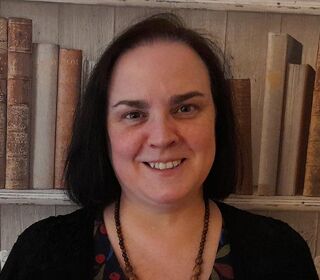
Blog Article

The research explores how undergraduate conservatoire students can develop pedagogical knowledge.
- Research project title: From Conservatoire Student to Music Educator
- Cluster/stream the project is attached to: BMERG/RBC
- Funder: Arts Design and Media, Birmingham City University
- Funding (optional): Staff Doctoral Studentship
- Duration of project: PhD 2018-2021; other projects ongoing
What are the names of the researchers involved in the project?
What was the aim of the research?
The research explores how undergraduate conservatoire students can develop pedagogical knowledge. It aims to counteract a long-held notion that teaching is as a second-class profession, and demonstrates that, through specialist modules, professional placements and mentoring, students can develop transferable skills, qualities, awareness, behaviours, values, and a sense of social responsibility to nurture the next generation of musicians.
What were the results of the research?
The data suggest that provision for instrumental teacher training across the conservatoire sector is inconsistent at present, that there is insufficient dialogue between institutions and employers regarding how best to prepare students to teach, and that conservatoire alumni have much to contribute to instrumental teacher education.
The research builds on Shulman’s Pedagogical Content Knowledge model (PCK) (1986; 1987), demonstrating that through pedagogical training and multiple work placements, students’ specialist musical knowledge (or Subject Content Knowledge: SCK) can be significantly enhanced. Transferable Content Knowledge (TCK) encapsulates the transferable skills that students develop in a conservatoire setting, enabling them to become confident communicators and collaborators. Values-Based Knowledge (VBK) nurtures a sense of social responsibility, raising students’ awareness of the professional qualities and behaviours necessary to forge positive relationships and create stimulating learning environments. The emergent ‘Developing Pedagogical Knowledge’ (DPK) framework offers scope to explore the transition from student to teacher across other phases of education and in other disciplines and has the potential to counteract hegemonic attitudes about teaching as a career pathway for musicians.
How did you carry out the research?
Semi-structured interviews, focus groups, questionnaires, observations and textual narratives were employed to gather ‘insider’ and ‘outsider’ perspectives. The research involved over 100 participants connected to RBC (students and alumni), seven academics from six other English conservatoires, and 66 senior managers representing 66 Music Education Hubs across England.
What was the background to this research?
Conservatoires and other Higher Education Music Institutions have a responsibility to contribute to the development of the future music education workforce and to ensure that their graduates are ‘best equipped to support musical learning in children and young people’ (National Plan for Music Education: DfE and DDCMS, 2022). However, in a context where teaching is often perceived as a ‘fall-back career’ (Bennett, 2012) or ‘something you do when you have failed as a performer’ (Association of European Conservatoires, 2010), it can be difficult to challenge the status quo.
Publications relating to this research
- Shaw L. (2024) Preparing conservatoire students for the music education workforce: conversations with alumni. British Journal of Music Education. Published online:1-13. DOI:10.1017/S0265051724000111
- Shaw, L. (2023) Conservatoire students’ perspectives on instrumental music teacher education: ‘Developing Pedagogical Knowledge’ (DPK) for the future music education workforce. Journal of Education for Teaching: International Research and Pedagogy, 50(1), 155-171. DOI: 10.1080/02607476.2023.2228233
- Shaw, L. (2023) Preparing conservatoire students for the music education workforce: institutional and industrial perspectives on instrumental teacher education in England. Music Education Research, 25(3), 280-293. DOI: 10.1080/14613808.2023.2222277
- Shaw, L. (2023) Conservatoire alumni as mentors in instrumental music teacher education: a preliminary study, Teachers and Teaching: Theory and Practice. DOI: 10.1080/13540602.2023.2211517
- Shaw, L. (2023) ‘If you’re a teacher, you’re a failed musician’: exploring hegemony in a UK conservatoire. Research in Teacher Education, 13(1). PDF available at: https://uel.ac.uk/sites/default/files/rite-june-23-shaw-article-pp-21-27.pdf
PhD Thesis
- Shaw, L. (2022) Facilitating the Transition for Student to Professional through Instrumental Teacher Education – A Case Study with Main Reference to the Royal Birmingham Conservatoire. https://www.open-access.bcu.ac.uk/13415/
Luan Shaw’s current research projects
- The role of RBC's Learning and Participation activity in music education workforce development
- Career preparation and development in a UK conservatoire – the role of alumni